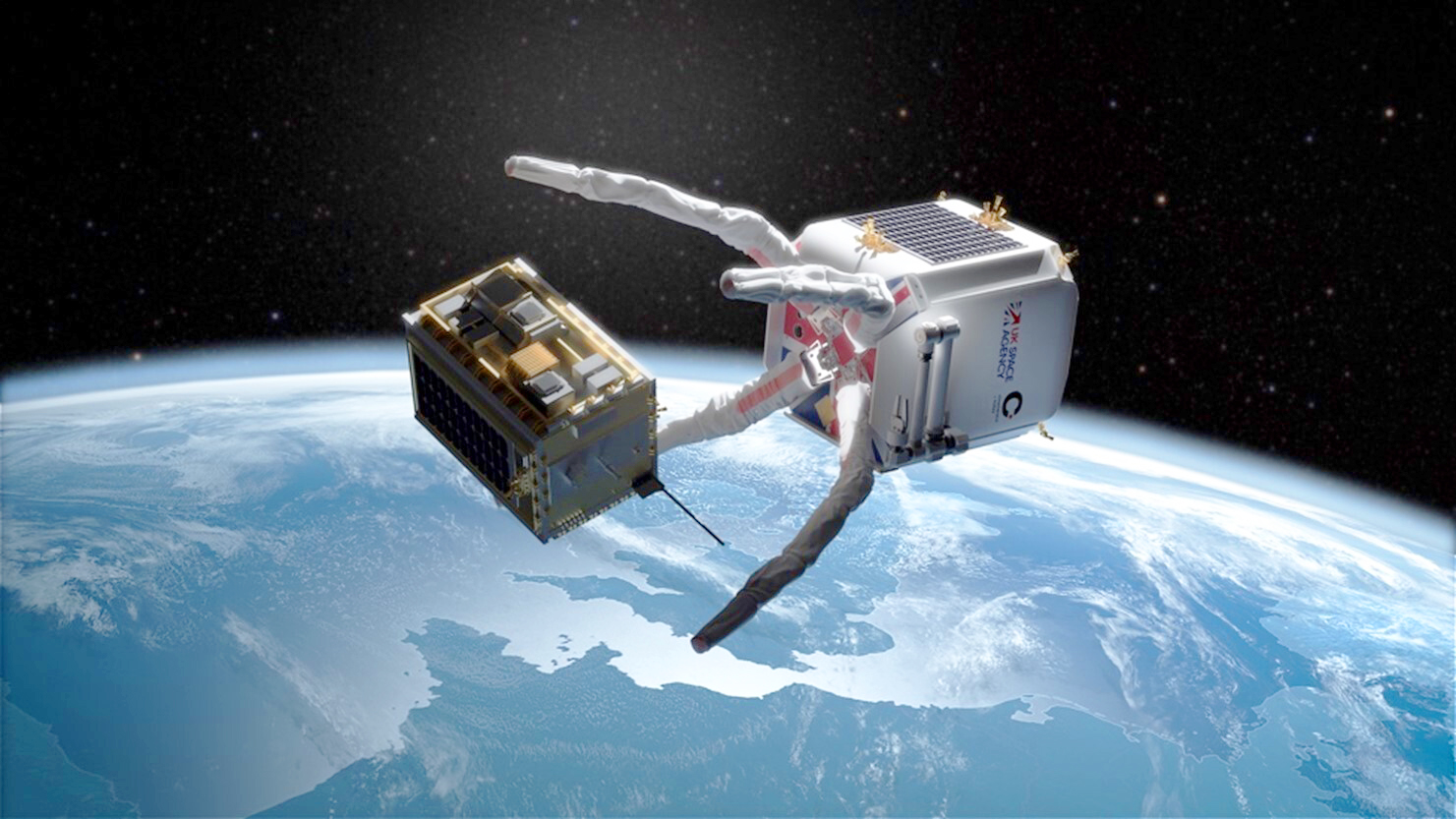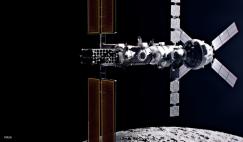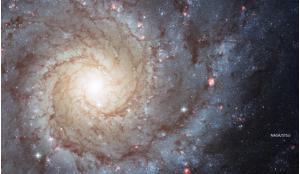Feasibility studies to remove derelict objects from low Earth orbit (LEO) are about to turn into real test missions for pioneering space debris firms ClearSpace and Astroscale.
The specialist businesses have been awarded contracts totalling £4 million ($4.3 million) by the UK Space Agency (UKSA) to design missions to help clear hazardous space junk.
Once designs are complete and accepted in a year’s time further funding will be available to pave the way for the UK’s first dedicated national space debris removal mission launch in 2026.
London-based ClearSpace was this week awarded £2.25 million ($2.44 million) to conduct the one-year design phase of a mission to remove two derelict satellites from LEO.
The Clearing the LEO Environment with Active Removal (CLEAR) mission, which will advance key technology building blocks, is planned as a catalyst for the development of commercially viable disposal services and other in-orbit services.
Astroscale, based at the Harwell Space Cluster in Oxfordshire, UK, was awarded £1.7 million ($1.84 million) to design a satellite servicer that is capable of removing multiple retired or defunct satellites in a single mission.
Its Cleaning Outer Space Mission through Innovative Capture (COSMIC) will harness Astroscale’s already developed rendezvous and Remote Proximity Operations (RPO) and debris capture capabilities.
Astroscale recently proved its magnetic capture and RPO capability in-orbit during the End-of-Life Services by Astroscale-demonstration (ELSA-d) satellite mission launched in 2021.
The COSMIC servicer will be a technological progression of Astroscale’s Sunrise program ELSA-M servicer – a commercial partnership between the UKSA, ESA and OneWeb, the global satellite operator. The ELSA-M multi-client debris removal space servicer will be launched ahead of the UK’s Active Debris Removal mission in late 2024.
Debris removal is expected to be the fastest growing segment of the emerging in-orbit services (IOS) market due to the increased need for operators to protect spacecraft in increasingly congested orbits. UKSA says it is enabling British companies to obtain the “first-mover” advantage in the IOS market which is forecast to reach $14.3 billion by 2031.
UKSA Chief Executive, Dr Paul Bate, said: "With 1,700 satellites launched last year alone, the need to safeguard the space environment for the benefit of everyone on Earth has never been more pressing. We are committed to leading efforts to make space more sustainable.”
The ClearSpace CLEAR mission will remove two derelict UK objects from a congested region of LEO above 700 km altitude. Both objects have been inactive for more than a decade and unless removed are predicted stay in orbit for more than 100 years before they naturally re-enter the atmosphere.
“By removing them, the UK is sending a strong message to the world regarding its commitment to address the space debris issue and lead by example in reducing orbital congestion,” said Dr Bate.
“This is crucial to protect critical space-based infrastructure that underpins a wide array of human activities, such as transport systems, climate change monitoring, financial transactions and weather forecasting.”
Orbital congestion and space debris is one of the biggest challenges facing the global space sector and there are estimated to be more than 130 million pieces of space junk orbiting Earth, from tiny flecks of spacecraft paint to old satellites, spent rocket bodies and even tools dropped by astronauts.
Such debris can stay in orbit for hundreds of years and presents a tangible danger to satellites and the public services that they deliver across the fields of communications, navigation to environmental monitoring.
UK gives space junk clearance missions priority funding











